Furo Wakuzo:
Bringing the Laughs to Public Baths
Furo Wakuzo entertains elderly customers at a local public bath in Adachi ward, Tokyo.
For this week’s interview I was able to speak with Furo Wakuzo, a very unique comedian from the Tokyo area. I’ve known Wakuzo for a few years, first making his aquantance when I was searching for a possible partner to perform manzai with. The potential partnership with Wakuzo never came to pass but his career path and the niche he had carved out stuck with me, leading me to seek him out for this website. What makes Furo Wakuzo, who name roughly translates into "the bath (furo) is being drawn (wakuzo)!" stand out is the fact that in addition to his stage appearances he also regularly performs at public baths in the Adachi ward area of Tokyo.
Public baths or sentō as they are referred to in Japanese, while not common in my native United States, have a long history in Japan and until recently were commonplace in Tokyo and other major cities, especially in a post-war era when apartments lacked baths or showers. Nowadays with most apartments and houses built with baths or showers sentō are nowhere near as common and have lost their place in the community as a centre not only for bathing but also socialisation and a way to maintain neighbourhood relationships.
I myself, while having visited a local sentō once or twice as a customer, had never seen a comedy show at one so when Wakuzo offered to take me along to one of his shows before being interviewed I jumped at the chance. What I encountered when I made my way over to the other side of Tokyo was a sentō, that while a bit run down, had just the kind of charm I imagined when dreaming of a downtown Tokyo public bath. For an audience of roughly 10 to 15 elderly, Wakuzo along with guest performer Oka Daisuke (a future interview subject) brought the laughs through clever puns and word play, songs, and humorous interactions with the customers.
The show itself was a hit but it soon became evident to me that this was much more than just a comedy performance. The event was organized by a local non-profit group with the goal of getting elderly citizens out of their homes as a means of checking on their health while providing them an important chance for socialization. With the issue of the rapid aging of Japanese society and the additional problems of isolation and poverty felt by some elderly such efforts certainly warrant praise and a closer look. However, before I digress into yet another long-term research topic with larger societal ramifications to write about let’s get back to today’s star, Furo Wakuzo.
It All Started With Manzai...
S: First of all, thank you for the interview and for today.
F: You’re welcome.
S: It was quite entertaining.
F: Thank you. Really? Well to perform in such a location…
S: Yes, such a venue is rare.
S: How long have you been in entertainment?
F: I’ve been in the business for 19 years.
S: So at first you were a mandan ( a solo comedian) performer?
F: Manzai actually.
S: In the duo Furo Meshi?
F: In Furo Wakuzo Meshi Takuzo (Meshi Takuzo could be translated as "Let's make the rice").
S: Where is Meshi now?
F: Meshi was a big guy and had a good, low voice so now he’s a seiyū (the Japanese word for animation voice over artist)…
S: Ah, so he is still in the entertainment industry?
F: Actually he is working at the supermarket Seiyu! (a large supermarket chain)
S: Ha ha! That joke is going to be hard to translate!
F: Ha ha! Well, actually he did want to do voice work and is on his own now.
S: So what first led you to manzai?
F: Downtown (a popular manzai duo). I loved their manzai. After watching their manzai I thought, “This is so funny!” So then a friend of mine and I formed a duo.
S: How old were you at that time?
F: I was in junior high/ high school at the time. Probably high school.
S: And that was at the time that Downtown first broke onto the scene and hit it big?
F: Downtown first became popular around my last year of elementary/ first year of junior high. They were very popular then.
S: So that’s why your comedy style is similar to Downtown. (Ha ha)
F: It’s nothing like them, ha ha! What I’m doing now is completely different!
S: So how long did you end up doing manzai?
F: About 7 or 8 years.
S: Were you with a talent agency?
F: No, I was performing in Asakusa. This was before the Manzai Kyōkai (an organization of different manzai performers) formed and I was performing at a place called the “Goro Roku Kaikan.”
Decked out in a happy made from public bath entrance curtains Furo Wakuzo is ready to entertain.
Finding His Way Alone...
S: So for about 7 years you did manzai and then you two broke up and what happened after that?
F: After breaking up I was left alone and couldn’t perform by myself. I didn’t know what to say. At that time, I was invited by Yoshi Ikuzo to go around with his troop and perform at theaters in Tokyo, Nagoya, and Osaka.
S: So you were an actor for a while.
F: Yes, an actor and one who works behind the scenes, a tsukibito (one who follows around and assists a star with various things).
S: For Yoshi Ikuzo?
F: Yes, yes. So I was his tsukibito. That took up about a month and a half of time. In the down time I helped out in the yose and sometimes was told to do the warm-up act. That’s when I started performing alone.
S: It was difficult at first wasn’t it?
F: It was really hard in the beginning!
S: Performing alone there’s nowhere for you to hide or no one to help you out.
F: Yes, I couldn’t talk at all. Before (with manzai) I had 5 or 10 minutes of material but alone I couldn’t even talk for 3 seconds. Just self-introductions and such. It was tough. I wasn’t able to talk like I did today (at the performance prior to the interview), teasing audience members and such. It was hard. But little by little I built my act up and was able to do more things on my own.
S: During that time how were you able to support yourself?
F: I worked part-time jobs. I worked as staff at weddings, sold box lunches at Tokyu department store in Shibuya, etc.
S: So basically any job you could get?
F: Yes, anything really.
A typical sentō before opening up for the day.
Onto a Unique Stage...
S: So when did you start performing at sentō (public baths)?
F: Hmh, about 5 years ago.
S: Only 5 years ago?
F: Yes, only that long.
S: Around the time when I first met you? (I first met Wakuzo around 2011-2012 through a mutual friend who is also an entertainer)
F: Yeah, that’s probably right.
S: But what about your stage name?
F: I had that since the beginning. Yossan (a nickname for Yoshi Ikuzo) gave it to me.
S: That’s quite a coincidence!
F: He gave me that name and then said, “Go out and perform solo.” So one day at a place called Ayase Edo Ichi I was asked to be the MC. I was asked to do it by Chance Aoki (a veteran Asakusa performer). That day, by chance, in the audience was the head of the public bath union, the top guy of the organization. So he saw my perform and than came up to me later and said, “So your name is Furo (bath)?” “Well, I’m a furoya (a person who runs a public bath). Why don’t you come to my sentō and perform once.?” And that was the beginning of my involvement with sentō.
S: So Yoshi Ikuzo didn’t have that in mind at all when he gave you that name?
F: No, not at all.
S: What a great coincidence!
F: Isn’t it!?
S: See I thought that the name was thought up with the idea of you working in sentō in mind.
F: Nope. There was no intention behind it. Just by chance.
S: That’s amazing.
And this and a song too! Furo Wakuzo serenades his audience at a public bath.
A Man of Many Talents...
S: So now you are performing at different sentō around Tokyo.
F: Yes.
S: Is that your main job right now, as a mandan performer?
F: As a mandan performer working at sentō is not my main job right now but I get offers directly from different sentō and it’s a very important place to me.
S: So you go here and there performing at different sentō, kind of making it your niche and you also write?
F: Yes, a column introducing different sentō in the Adachi ward area.
S: But you’re also a ring announcer too aren’t you?
F: Yes, I am.
S: When did that start?
F: Well, when I went solo and was acting as well I thought to myself if I didn’t have any acting work I wouldn’t be able to survive. It’s a very unstable career you know. Around that time one person who had seen me performing solo came over to talk to me.
S: Another person who had seen you performing came to you with an offer?
F: Yes, ha ha. He told me that he knew this interesting izakaya (similar to a bar) where you can watch Thai boxing while having a beer. He took me to that izakaya and there I got into a conversation with the organizer of the boxing matches and he said, “What don’t you come next week and announce the match?” So of course I came the next week and started doing that too out of the blue.
S: Ha ha. So now you are a mandan performer, ring announcer, and what else?
F: An MC.
S: Well, I can certainly see how you would get that job. Which one do you do the most frequently?
F: Oh, I’m also a teacher.
S: A teacher? What are you teaching?
F: I go to a Tokyo high school and teach a course on communication, how to handle yourself around people when you go out into society and such.
S: Like how to make jokes that elderly people will enjoy?
F: Ha ha. Yes. “This is how you speak to older men and women” and such.

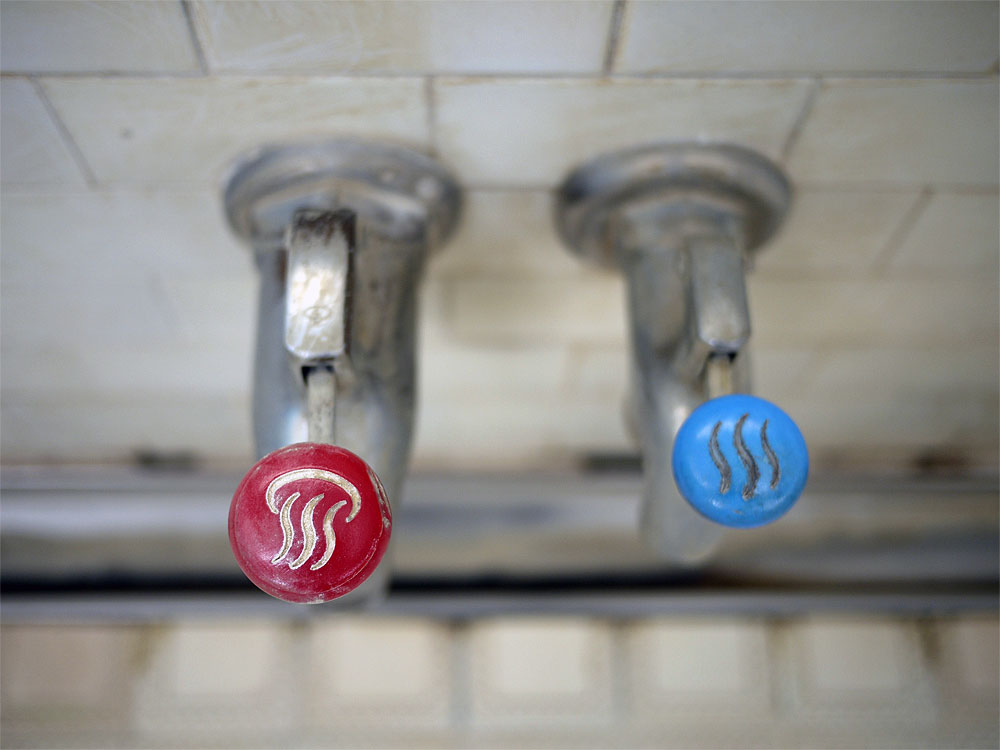

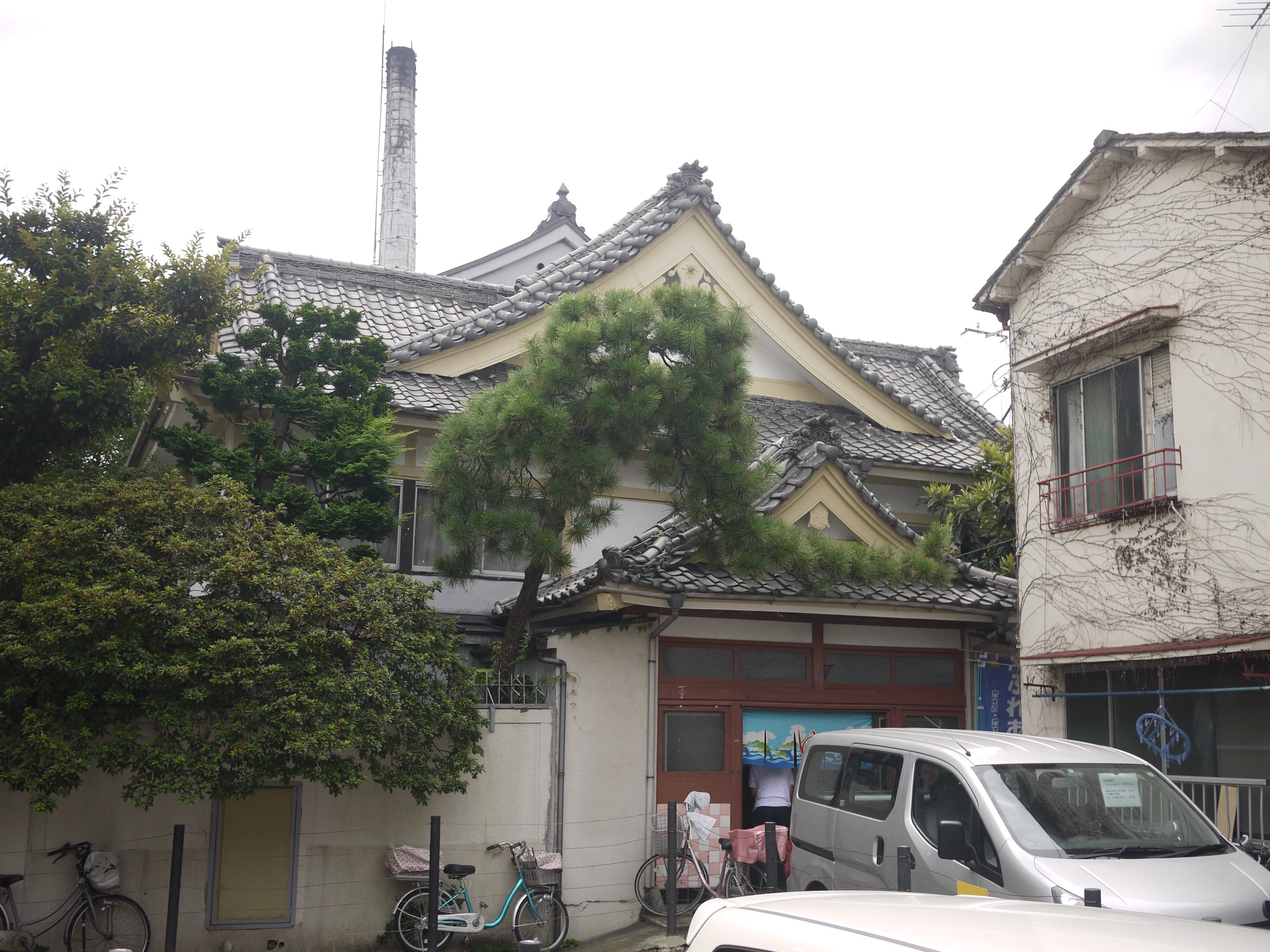
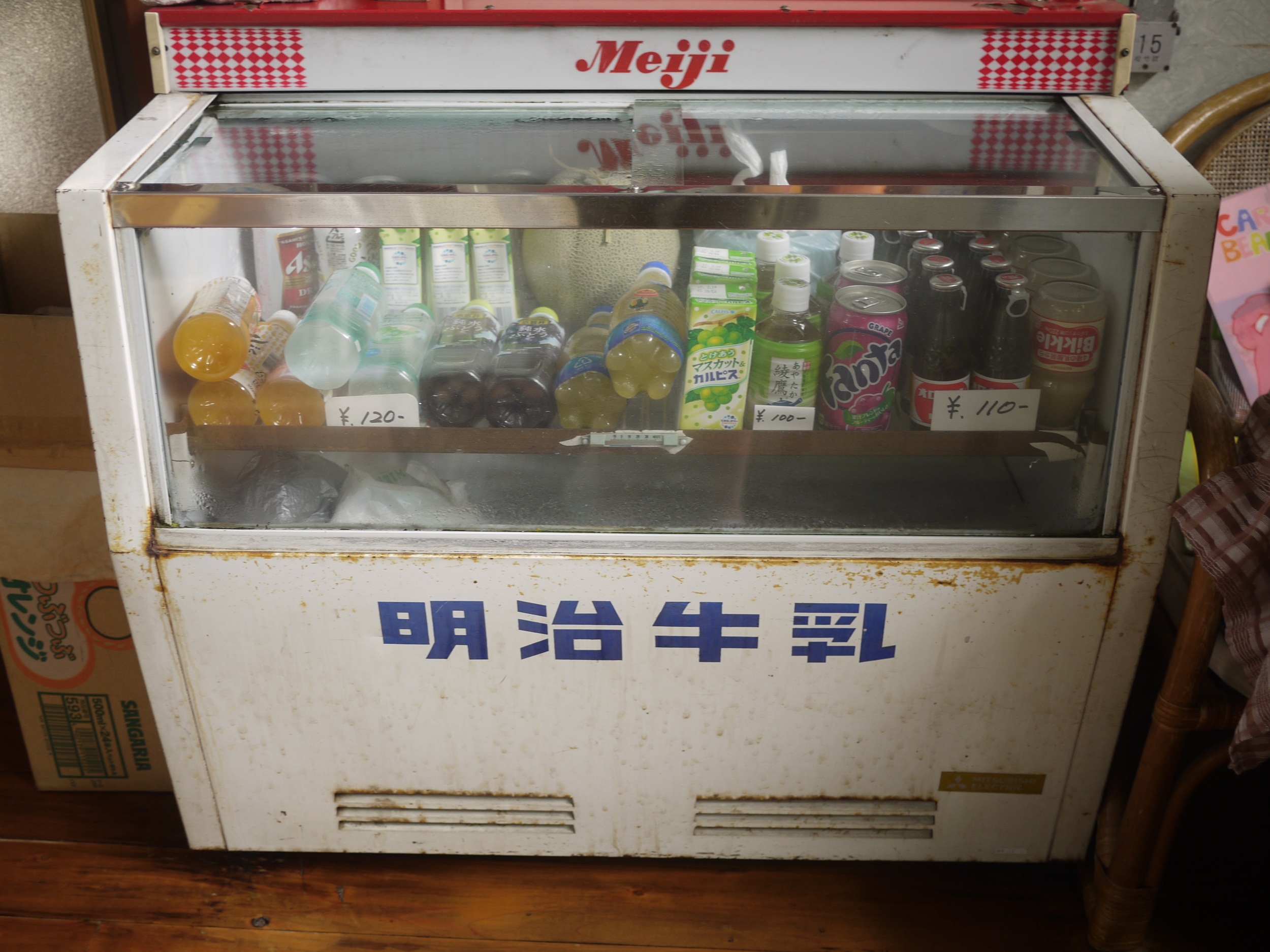
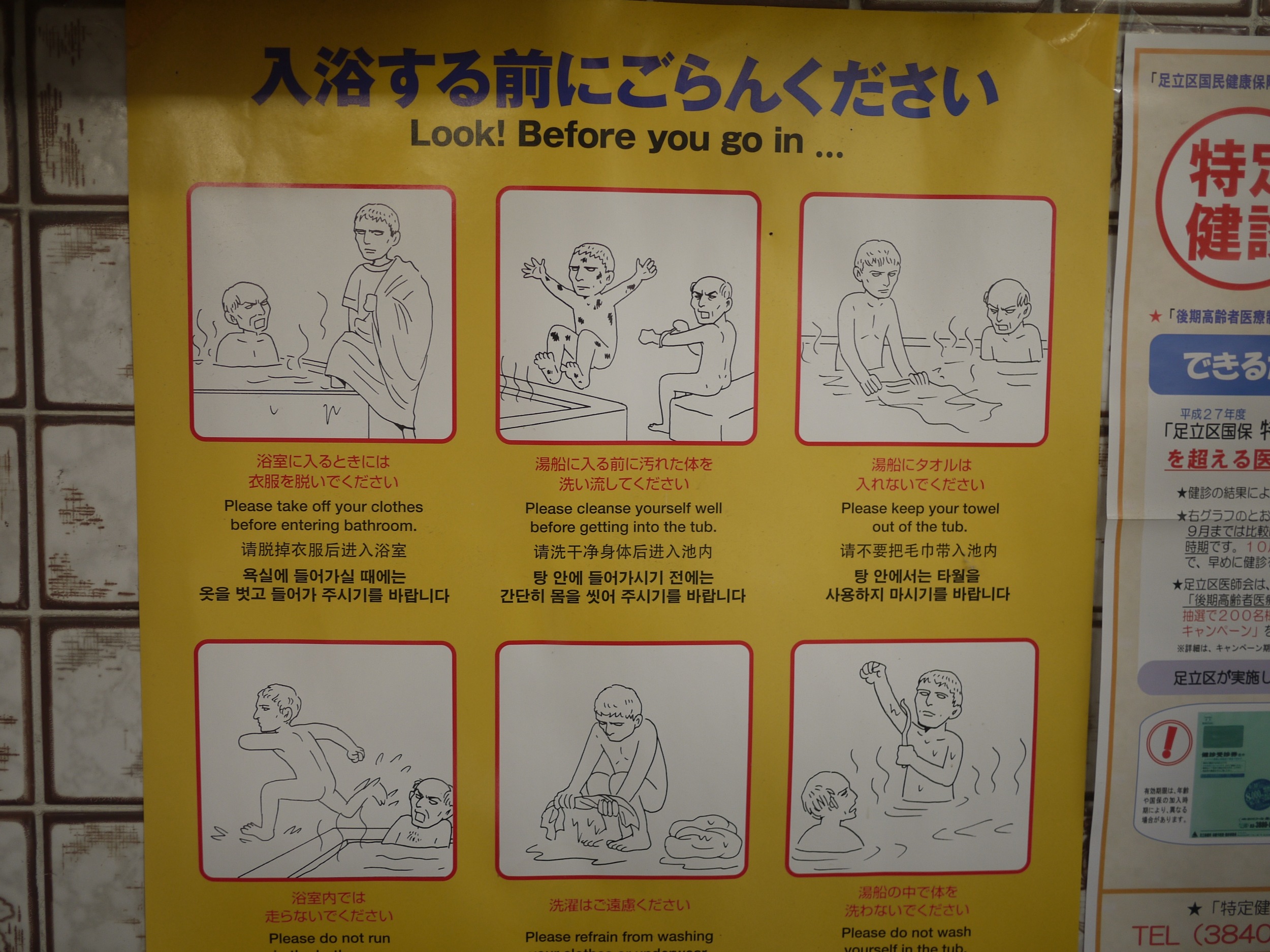
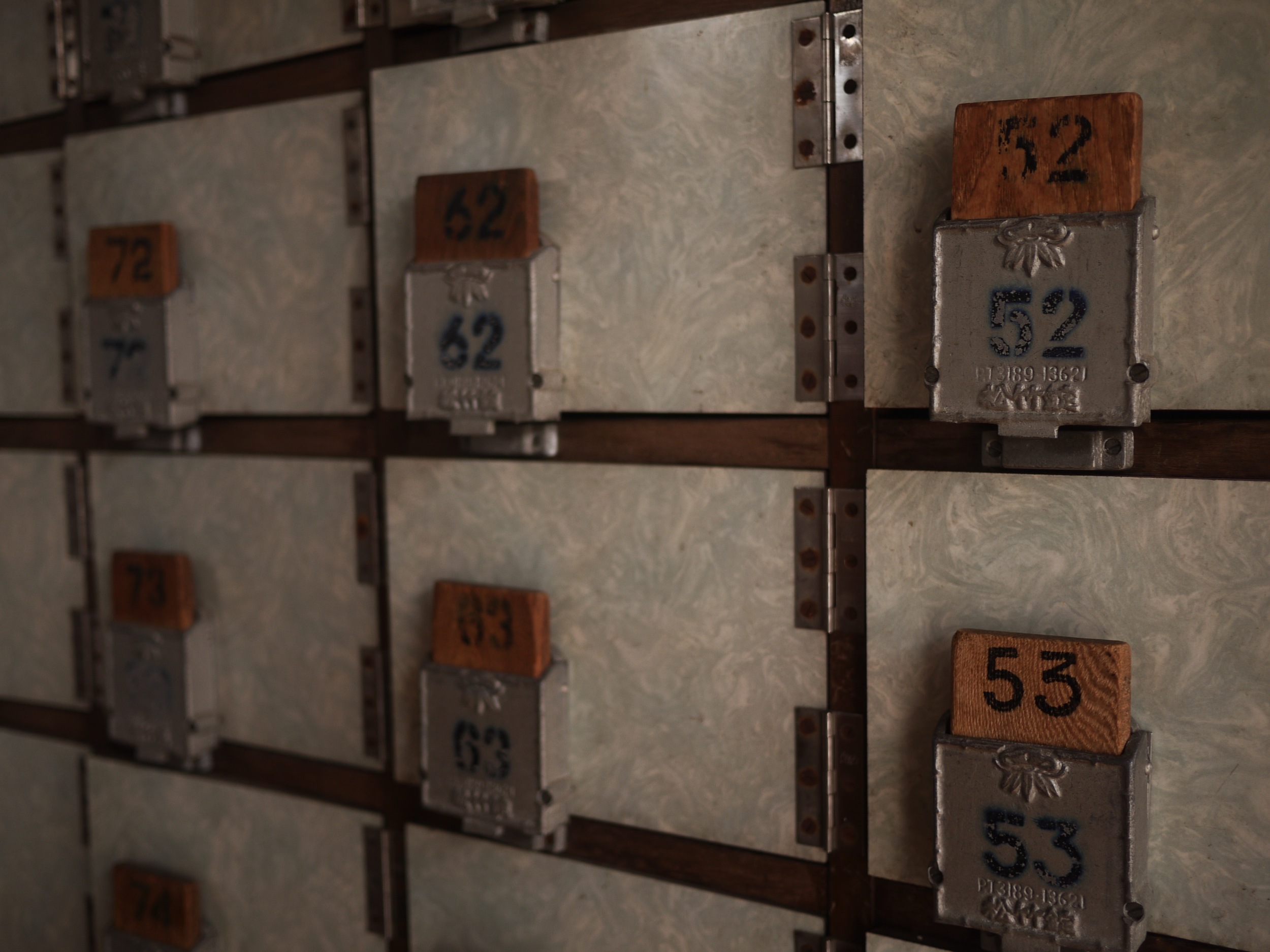
The Virtues of Sentō Culture...
S: So do you like sentō yourself?
F: Yes, I go often. As an individual and because I’m writing a column on them. I go to one maybe 3 or 4 times a week.
S: The sentō culture doesn’t really exist in the U.S. What’s so good about a sentō?
F: Well, unlike one’s home bath it’s very spacious. It feels really open. And all that hot water is good for your health. At home when you take a bath it’s not that different than a shower. You just get in it to clean yourself. But with a sentō there is so much hot water in the baths that it has the effect of massage. It’s good for your circulation.
S: And how about the environment of the sentō?
F: It has a great atmosphere with a spacious bath area and the high ceilings. And being naked with other people too. When you take your clothes off and are naked with others your soul is naked too. Unguarded. You can exchange words with people you normally wouldn’t be able to talk to outside of the sentō.
S: You can talk to people that you wouldn’t talk to out on the street.
F: Yes, that’s true. Because you are in there together. “Hey there, where are you from?” You can have conversations like that. Today (at the performance at the sentō) there were people you would usually never have a chance to talk with. But at a place like the sentō conversation comes naturally.
S: Everyone was so cheerful today. Very energetic for their age. It’s true that laughing is good for your health.
F: Yes, and all the people that were there today were at least 70 years old with the oldest around 91. And one of the conditions of this event today was that they had to walk to the sentō themselves.
S: So the organization that held the event today had that deal with them?
F: Yes, because they won’t go and pick them up the elderly have to come on their own. They can take a bus or train but they have to walk for themselves. Just leaving the house like that also helps keep them healthy. That’s the system that that group uses.
S: Yes, it forces them to be more social as well.
F: It prevents them from just staying at home alone. Never going out would not be healthy for them.
S: And while they are at the sentō I saw the group checking their blood pressure.
F: Yes, their blood pressure is check and they have a nurse in the group that checks their condition by asking things like, “Are you having normal bowel movements?” and such.
S: That group is really filling a need in today’s society in Japan.
F: Yes, from here on out. Thanks to groups like that’s efforts the health costs in Japan can be brought down a little. Usually people like that go to the hospital for any old problem. This group, by taking these proactive steps, they can catch things before they get bad and just having someone ask about your health cheers people up.
S: Yes, and some elderly go to hospitals or clinics partly because they want someone to talk to.
F: Yes, and this takes care of that.
S: Yes, it’s even worse in the countryside with the lack of transportation for elderly who can no longer drive. Do you ever go and perform there?
F: Yes, I go to the countryside to cover the sentō. However, just like today, there are no young people out there. The average age of those that frequent those sentō (or public baths as they are also called) is very high.
S: So the future of the sentō is not so bright?
F: Nowadays not many people go to sentō. Because of that they don’t make any money and because of that no one wants to run one (or start up one).
S: I did see one news story were a young person opened a sentō but that was on the news probably because it is so rare.
F: Yes, and another thing is the buildings are old. Young people don’t want to go to such old facilities. (Showing an magazine article on a beautiful new sentō) See this? This is also a sentō. A beautiful place like this would attract young people.
S: Well, not everything that is beautiful and new is good. I mean this place (shown in the magazine) is nice and clean but where we were today…maybe some people would like it because it is old and a little run down. There are people that like that. Like the young people that come to the Tōyōkan to see comedy. (The Tōyōkan is a comedy theater that mainly caters to older audiences and tastes)
F: Ha ha, that’s a good example.
Furo Wakuzo performing with Oka Daisuke.
Breaking Down Walls and Building Trust...
S: So now your mandan routine relies on puns and word play and such?
F: Well, basically the act is just me talking by myself but because I sometimes do multiple dates at a sentō I try different things out all the time. So before I do something on stage in a theater I’ve already experimented with it at the sentō.
S: But sometimes things don’t go as planed, like a couple things in today’s act…
F: Ha ha. Yes.
S: But they do seem like a kind and forgiving audience.
F: Actually to get them to be like that took a long time. At first many of them were like, “Who is this young guy? Who does he think he is? Trying to make me laugh? Forget you!” However, by not giving up and coming often some were like, “Ah, you’re back here again. Good luck!”
S: You really need that trust from the audience. By coming several times you gain that trust as these people start to believe that you understand and care for them.
F: Yes, there’s a wall at first.
S: And today, because you first introduced me to them they embraced me and let me observe.
F: Yes, if you just came and started up they would be surprised and put off perhaps putting up a wall.
S: Yes, it takes time.
F: Because of that I introduced you today, “This is Shawn.” and explained what you are all about and such.
S: Yes, maybe they thought I was one of those attacking titans from the manga.
F: Ha ha ha.
S: Coming over the wall to eat them and such.
F: Ha ha. And today I didn’t go in but after the comedy performance everyone was eating weren’t they? After that everyone gets in the public bath. Usually I wait after my performance and then take a bath with them. So I get in and take a bath with them, sweat a little together and talk about this and that. If you don’t go that far it’s hard to build trust.
S: Yes, I actually brought my own towel just in case today.
F: Really? Sorry we didn’t get a chance.
S: That’s okay. I only brought it just in case. I didn’t know what to expect today before coming. But it is true that taking a bath together in a public bath does break down walls. And in the past, the sentō was the center of the community. That’s not true these days however.
F: The world is big now. There is the Internet and all sorts of places to meet people now.
S: But after World War II one of the first things they would rebuild was the community sentō.
F: Yes, so people could at least get clean.
S: And they would rebuild the community around it.
F: Yes, I heard they really used to make a lot of money at that time, with so many people using it. This was at a time when many people didn't have a shower or bath at home.
S: Well thank you so much for this interview and letting me see your performance. It was really enlightening!
F: Thank you for coming!
In addition to local sentō Furo Wakuzo can be seen regularly at the Asakusa Toyokan. You can also keep track of him via his blog (Japanese).
Published 08/18/2016




